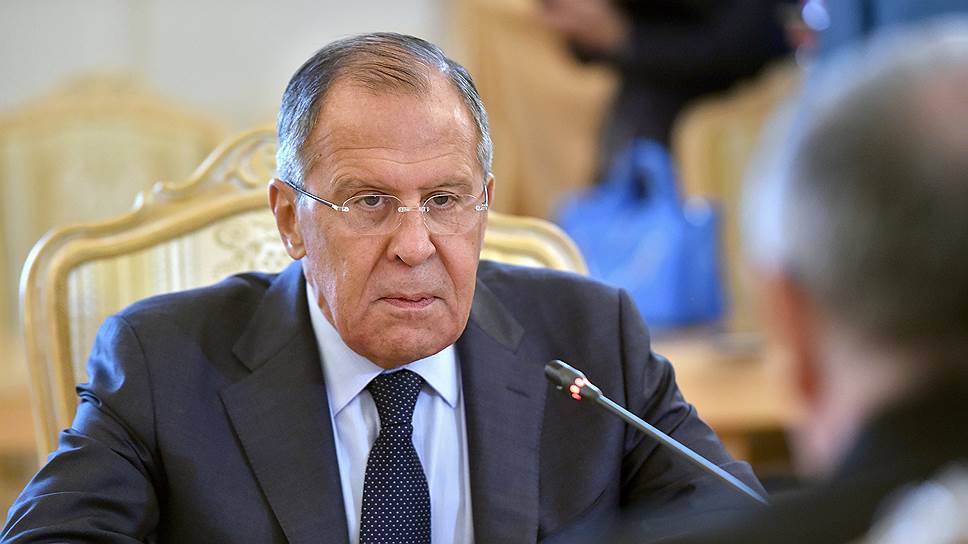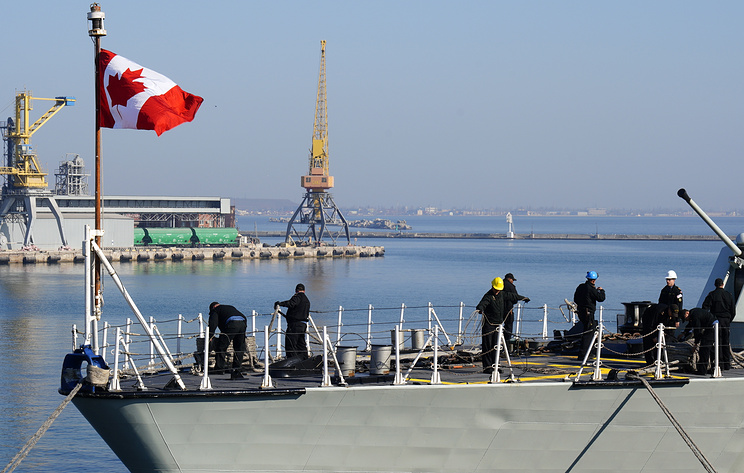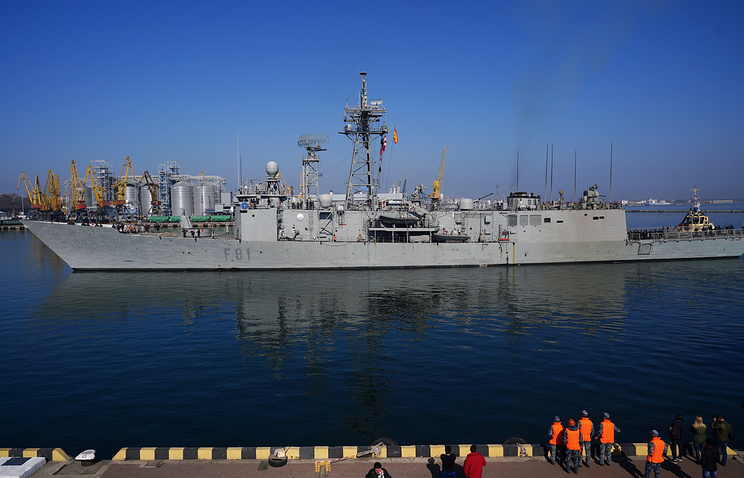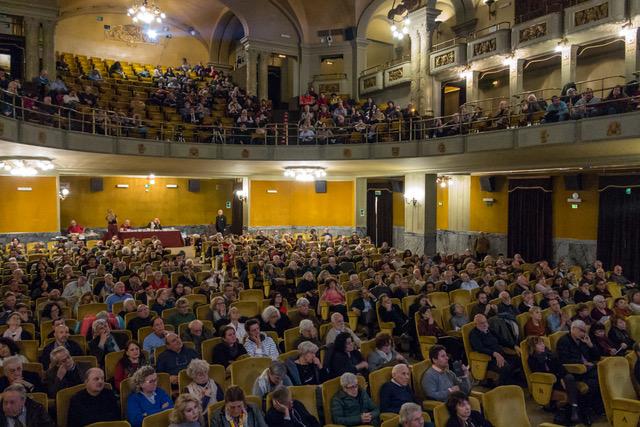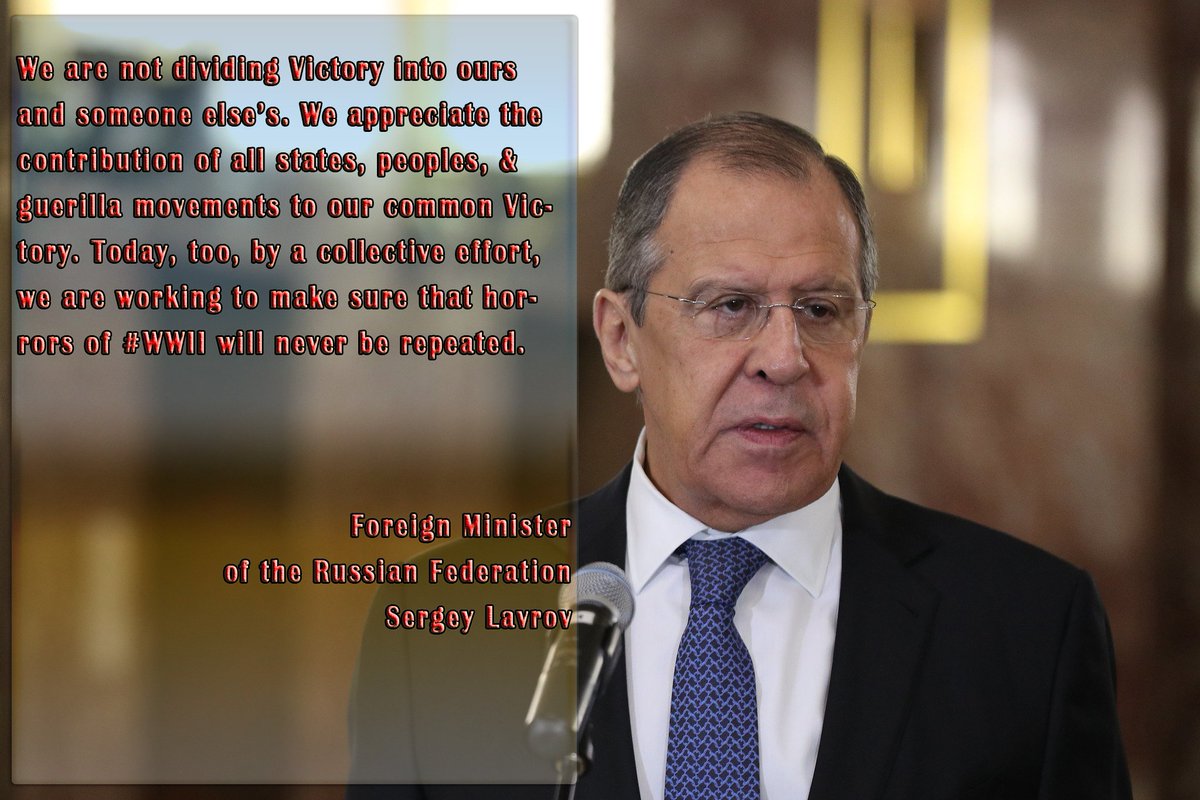A new monument in Chicago celebrates US-born Lithuanian Nazi collaborator Adolfas Ramanauskas “Vanagas,” who led a fascist militia that massacred Jews in the Holocaust. EU and NATO member Lithuania heroizes him for fighting the USSR.
May 15, 2019 - New NATO-approved US monument honors fascist Lithuanian Nazi collaborator as anti-Soviet hero
New NATO-approved US monument honors fascist Lithuanian Nazi collaborator as anti-Soviet hero
The United States is now the site of a monument to a Nazi collaborator.
In the suburbs of Chicago, a Lithuanian government-backed group has erected a statue dedicated to US-born Adolfas Ramanauskas (known by the codename Vanagas), who led a fascist militia that massacred Jews in the Holocaust.
Because Ramanauskas also helped lead the fight against the Soviet Union, he has been lionized by NATO allies.
In fact, the current government of Lithuania — a proud member of both the European Union and NATO — even sent its foreign minister to bless this pro-fascist monument at its unveiling ceremony.
The academic publication
Defending History, which tracks Holocaust revisionism in Eastern Europe, has
documented the controversy behind the construction of the statue.
The government-sponsored Genocide and Resistance Research Centre of Lithuania initiated a campaign to build a monument to Ramanauskas in the town of his birth, New Britain, Connecticut.
Lithuania’s state-funded Genocide and Resistance Research Centre has spent the past nearly three decades
fueling Holocaust revisionism by portraying Nazi-collaborating Lithuanian fascists who murdered Jews in the Holocaust as anti-communist resistance heroes, while depicting Jewish anti-fascist partisans as war criminals; and by advancing the “
double genocide” theory that falsely equates Soviet atrocities with Nazi crimes against humanity.
But the New Britain, Connecticut Common Council
rebelled against the Lithuanian government’s plans to build the monument, forcing the town’s Republican mayor to
cancel the construction.
This led the Lithuanian government to move the monument to the private property of the
Lithuanian World Center in Lemont, Illinois, a suburb of Chicago, which has a large Lithuanian-American community.
On May 4, the monument to the infamous Nazi collaborator was unveiled in a ceremony
sponsored by EU and NATO member
Lithuania. Foreign Minister Linas Linkevicius
traveled to the US for the event, and honored Ramanauskas as a “freedom fighter.”
The
Russian government pushed back, declaring in response to Linkevicius on Twitter, “Adolfas Ramanauskas (Vanagas) – Nazi collaborator & criminal actively involved durind WWII and afterwards in extermination of Jewish population of Lithuania, participated in massacres of Poles, Lithuanians, Russians, Belorussians & other ethnic groups. Glorifying him is shameful!”
The Lithuanian foreign ministry replied with an impassioned defense of the Nazi-collaborating anti-Soviet partisan leader.
A few days after
tweeting in support of these Nazi collaborators who led fascist militias that murdered Jews in the Holocaust, Lithuania’s Foreign Ministry and
foreign minister published tweets
praising Israel.
Government honors for Nazi collaborators
A staggering
90 to 96 percent of Jews in Lithuania were killed in the Holocaust. Support for fascism and the Nazi occupation was not uncommon in the deeply right-wing, anti-Semitic, and anti-communist country.
Adolfas Ramanauskas’ role in this genocidal onslaught is well documented. Lithuanian scholar
Evaldas Balciunas noted that, in his own memoirs, Ramanauskas “boasts that he served as leader of ‘the rebels’ squad’ during the precise days and weeks of June and July 1941 when these ‘rebels’ of the Lithuanian Activist Front (LAF) were in fact unleashing humiliation, plunder, violence and indeed murder against Jewish neighbors (the Soviet army was escaping Hitler’s invasion, not these white-armbanded LAFers).”
Many Lithuanian anti-Soviet partisans took the following oath, as documented by Balciunas:
“I pledge to battle the Bolshevik soldiers in hiding as well as other Bolshevik supporters, Communists, Communist Youth, Pioneers, and all pillagers and enemies of the public order with all my strength and no fear for my own life…
Long live Lithuania, long live our liberator Germany and its leader Adolf Hitler.”
Since the overthrow of the Lithuanian Soviet Socialist Republic in 1990 and the collapse of the USSR, the increasingly right-wing government in Vilnius has moved to rehabilitate past Nazi collaborators like Ramanauskas.
Lithuania’s parliament the Seimas designated 2018 to be the year of Adolfas Ramanauskas “Vanagas.” The Lithuanian government held a ceremony to
commemorate Ramanauskas’ 100th birthday. The Lithuanian Armed Forces marched in honor of the Nazi collaborator, after a flag ritual in front of the parliament building in the capital Vilnius.
In October 2018, the Lithuanian government held a massive two-day
state funeral ceremony for Ramanauskas, also featuring the military and top figures from the Catholic Church, including the archbishop of Vilnius. Ramanauskas had been captured by the KGB and killed in 1957, but Lithuania’s post-Soviet right-wing government posthumously honored him with this state funeral, along with a symbolic promotion to brigadier general and the Order of the Cross.
Lithuanian media reports on these state-sponsored ceremonies referred to the fascist leader of an anti-Semitic militia as an “anti-Soviet resistance commander” and “prominent leader of the Lithuanian Freedom Fighters.”
NATO’s praise for Baltic Nazi collaborators
This is not the first time NATO allies have honored Nazi collaborators from the Baltic states.
The Grayzone reported in July 2017 on a flashy film produced by NATO that honored the Forest Brothers, Baltic pro-fascist fighters who voluntarily collaborated with the Nazis before later fighting the Soviet Union.
The Lithuanian government has returned the favor, flaunting pride for its membership in NATO, and the EU.
On their official
Facebook and Twitter accounts, the
Foreign Ministry and
Foreign Minister Linas Linkevicius have header images boasting of Lithuania’s “15 years in the European Union and NATO.”
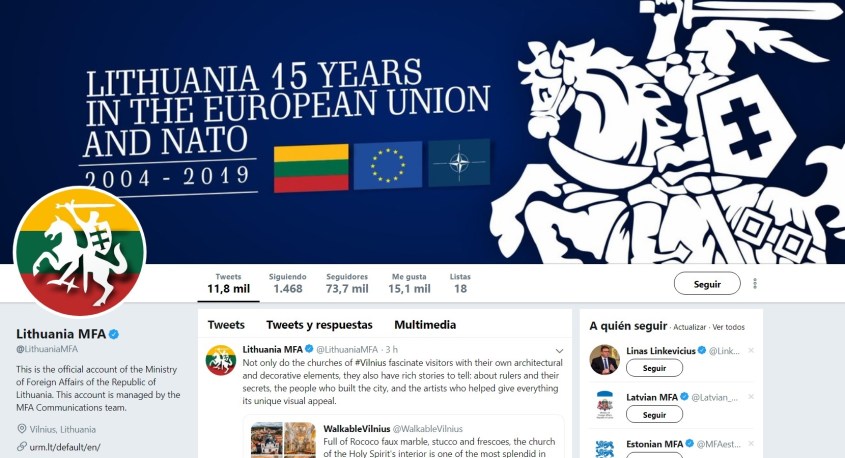
Before being promoted to foreign minister in 2012, Linkevicius served for six years as Lithuania’s permanent representative to NATO. He has
fawned over NATO, repeatedly calling it the “
greatest political-military Alliance in history.”


